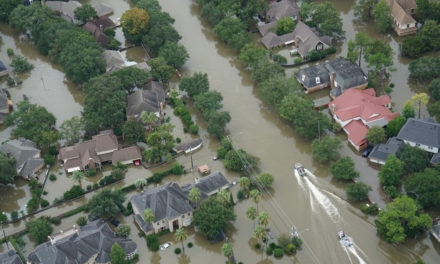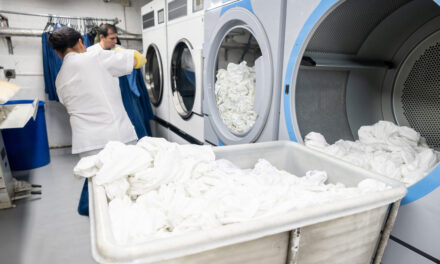Understanding Legionella Risk and Water Management Programs in Senior Living
Legionella pneumonia is on the rise in the United States, including in Senior Living buildings. Legionnaires’ Disease is a serious type of pneumonia caused by Legionella bacteria, which live in water. An inadequately maintained water system in a building could provide an environment more conducive to bacterial growth, potentially putting residents and staff at risk. That is why it is important to understand Legionella risk and the Legionella Water Management plans and programs available in Senior Living.
How much does Legionella Impact Senior Living?
since 20001
Initially, many Senior Living providers have found themselves short-staffed or under-qualified to develop water management programs. But with guidance, developing and implementing a plan utilizing internal staff, outside support or a combination of the two is within reach for most organizations. Two helpful guide documents provide a starting point: the ASHRAE 188 and the CDC Toolkit.
Preparing for and Defending Your Facility against This Challenge
PER QSO-17-30 – HOSPITALS/CAHS/NHS
DATE: JUNE 02, 2017 REVISED 07.06.2018
GENERALLY STATES THAT:
- Facilities must have water management plans and documentation.
- Testing protocols are at the discretion of the provider.
The national guideline specifies that healthcare facilities create and warehouse water management plans specific to their campuses. If your campus has multiple buildings, you should have a plan for any building that has an entry point from the local municipal system. Stated differently, if two buildings share a water source, you would require one plan.
When developing a personalized water management plan for your facility, utilize the CDC Toolkit as guidance across the multiple plan elements that CMS looks for. All portions are important, but feedback from communities nationwide has been that surveyors pay specific attention to the following sections:
- Describe your building’s water system
- Identify areas where Legionella can grow
- Detail control measures and corrective actions
While testing is not mandated nationwide, it is also recommended that you specify testing protocols and acceptable ranges within the control measure section, as well as document the results of testing and corrective actions. Refer to your Authority Having Jurisdiction (AHJ) for local interpretation or guidelines.
How Often Should I Revise My Water Management Plan?
When it comes to compliance, consistency is key
While regulations don’t change on a whim, it’s important to review and revise your water management plan annually. As your building’s water system changes or ASHRAE/CDC guidelines change, you’ll want to ensure your plan is up to date. Another big area for change might be increases in risk due to incidents or outbreaks reported from others within your municipality.
Lastly, the first section of a good water management plan asks you to document your water management team. Thanks to recent changes within the Requirements of Participation, it’s likely that your team has now grown to include an infection preventionist. From turnover to regulation changes, it’s important to keep your team up to date within your plan and on the plan itself. All partners listed should be able to describe your building’s water systems, understand your areas of risk and have clear direction on control measures and corrective actions. Should a community-acquired event occur, a well-defined plan and a knowledgeable water management team is your best protection against additional risks.
Water Testing for Legionella
Legionella testing: methods, best practices and not all guidelines are created equal
While CMS guidelines require certified healthcare facilities to have a water management plan in place, some local municipalities enforce stricter guidelines regarding testing protocols. Customers should adhere to all applicable federal, state and local regulations when it comes to testing for Legionella. Additionally, if Legionella has presented itself locally, additional steps may be required. In the event of a conflict between regulations, your AHJ will need to be consulted.
When testing for Legionella, the most common method is bulk-water sampling. This consists of collecting water from potable water fixtures or from warm-water-containing mechanical equipment. Areas of focus include, but are not limited to, evaporative cooling basins, shower heads, faucets/taps, spas and other locations where warm water collects. Due to the diversity of plumbing and mechanical systems in Senior Living buildings, you may need more than one sample.
If you feel your community is at risk, current best practice recommendations are to use a lab culture test cultured by a CDC ELITE certified lab that adheres to ASHRAE guidelines. This is likely the same level of testing that your Department of Health (DOH) will apply should an incident or outbreak occur. Alternatively, on-site qPCR testing has recently been validated to be as effective as culture testing and also adheres to ISO Technical Specification 12869:2012. While more expensive, qPCR test results are available on site within a matter of hours while culture tests require seven to 10 days to be developed and analyzed by a lab.
What Should I Do If My Facility Tests Positive for Legionella?
Understanding the risk of Legionella and preparing for any outcome is the first step to preventing Legionella. However, sometimes even with prevention in place, your facility can still test positive. Here’s what you should do if your building is positive:
- Establish a response team
- Gather information about the positive test, including:
- Time & location of the person who was positive
- Contact your TELS representative to schedule a meet with IWC
- Monitor the situation
Senior Living Legionella Water Management Options
TELS has resources to help you meet this emerging challenge!
TELS has collaborated with industry experts and state surveyors to create a library of regulatory tasks and materials that can be tailored to your preferences.
View our services or sign in today to access a water management toolkit that can help you with your water management program from development to testing. Or contact us at 800-667-3880 to talk about the status of your water management plan and how we can help you develop, drive scale or assist with compliance to CMS guidelines.




